News and Events
New publication: In a surprising finding, light can make water evaporate without heat
MIT News reported a newly identified process that could explain a variety of natural phenomena and enable new approaches to desalination.
Research Presentation: Rethinking Evaporation: Thermal and Optical Evaporation from Pure Water and Hydrogels
Research presentation by Professor Gang Chen at Caltech, watch here.
New publication: High ambipolar mobility in cubic boron arsenide
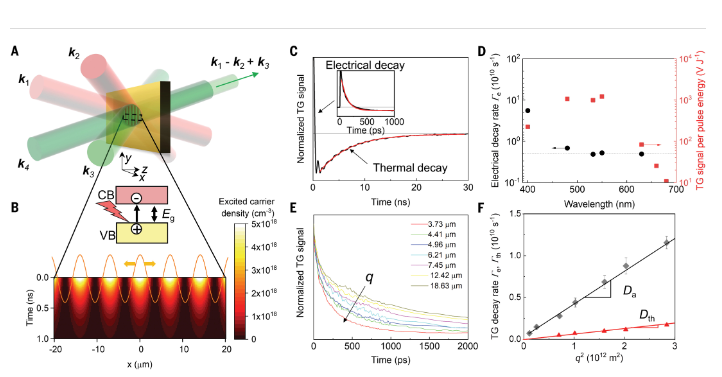
The researchers measured thermal conductivity of 1200 watts per meter per kelvin and ambipolar mobility of 1600 centimeters squared per volt per second at the same locations on c-BAs samples at room temperature despite spatial variations. Ab initio calculations show that lowering ionized and neutral impurity concentrations is key to achieving high mobility and high thermal conductivity, respectively. Learn more about the findings here.
New publication: Nanoscale imaging of phonon dynamics by electron microscopy
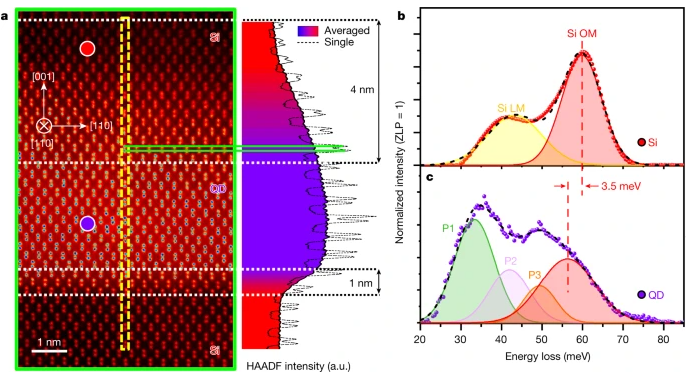
Collaborated with groups of Professors Ruqian Wu and Xiaoqing Pan, the paper demonstrates two-dimensional spatial mapping of phonons in a single silicon–germanium (SiGe) quantum dot (QD) using monochromated electron energy loss spectroscopy in the transmission electron microscope.
James Zhang awarded J-WAFS Fellowship
The Nano group member, graduate student James Zhang won the J-WAFS fellowship. The fellowship seeks students with outstanding academic credentials for these fellowships. James’ research aims to explore potential solutions for water. Congratulations to James!
New publication: Significant reduction in semiconductor interface resistance via interfacial atomic mixing
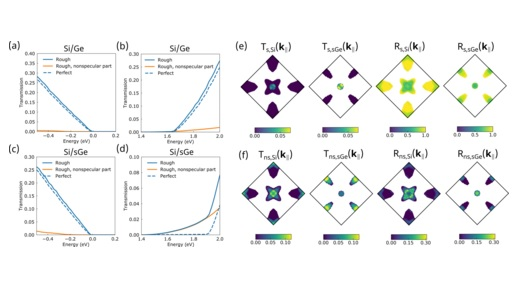
Published by Physical Review B in May, 2022, the work employs Green's functions to study the charge transport across representative Si/Ge interfaces. Specifically, the paper shows that disordered interfaces with certain symmetries create more nonspecular transmission. The insights from our study will benefit the future design of high-performance heterostructures with low contact resistance.
Group member accepted faculty position
Dr. Shaoting Lin received his doctoral degree in 2019 from the Mechanical Engineering at MIT. He is a postdoctoral researcher under MIT Professors Xuanhe Zhao’s and Gang Chen’s mentoring. His postdoc work focuses on high-performing hydrogels for long-term healthcare and sustainable water harvesting. Dr. Lin will join Michigan State University as an assistant professor in the Department of Mechanical Engineering, starting in Fall 2022.
New Research Award
The NanoEngineering group won the 2022 J-WAFS Seed Grant. The research is to study using sunlight to desalinate water. The solar thermal evaporation process has an overall low efficiency because it relies on breaking hydrogen bonds among individual water molecules, which is very energy-intensive. Professor Chen and his lab recently discovered a photomolecular effect that dramatically lowers the energy required for desalination.
New publication: Thermally Regenerative Electrochemically Cycled Flow Batteries with pH Neutral Electrolytes as for Harvesting Low-Grade Heat
The paper was published by Physical Chemistry Chemical Physics on September 15, 2021. The thermally regenerative electrochemically cycled flow battery (TREC-FB) has the advantages of providing a continuous power output, decoupling the heat source and heat sink and recuperating heat, and compatible with stacking for scaling up. However, TREC-FB suffers from the issue of stable operation due to the challenge of pH matching between catholyte and anolyte solutions with desirable temperature coefficients. In this work, we demonstrate a pH-neutral TREC-FB based on KI/KI3 and K3Fe(CN)6/K4Fe(CN)6 as the catholyte and anolyte, respectively, with a cell temperature coefficient of 1.9 mV/K and a power density of 9 μW/cm2.
New publication: Evaluation of the diffuse mismatch model for phonon scattering at disordered interfaces

The paper published in Physical Review B in August, 2021 demonstrates that diffuse phonon scattering by a single disordered interface cannot make a phonon lose its memory and thus the applicability of the diffusive mismatch model is limited.
Qian Xu awarded MathWorks Fellowship
The fellowship awards students who use Matlab and Simulink to advance discovery and innovation across disciplines. Congratulations to Qian!
Simo Pajovic awarded NSF Fellowship
The NSF Fellowship supports outstanding students in some STEM disciplines. Congratulations to Simo!
James Zhang awarded iBuild Fellowship
The iBuild fellowship supports graduate students to conduct innovatieve research in the area of building energy efficiency. James’ research focuses on developing supermoisture-adsorbent gels using combinations of hygroscopic and thermally active polymers for dehumidification processes. Congratulations to James!
New publication: Phonon-engineered extreme thermal conductivity materials
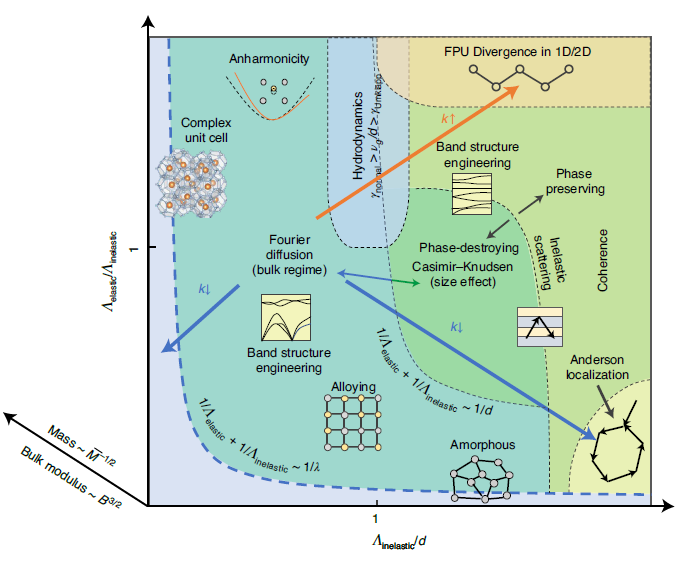
Recently, a review article by Xin Qian, Jiawei Zhou and Prof. Gang Chen is published in Nature Materials. This article comprehensively summarizes recent discoveries of both inorganic and organic materials with ultrahigh and low thermal conductivity, highlighting heat-conduction physics, strategies used to change thermal conductivity, and future directions to achieve extreme thermal conductivities in solid-state materials.
New publication: Direct observation of large electron–phonon interaction effect on phonon heat transport
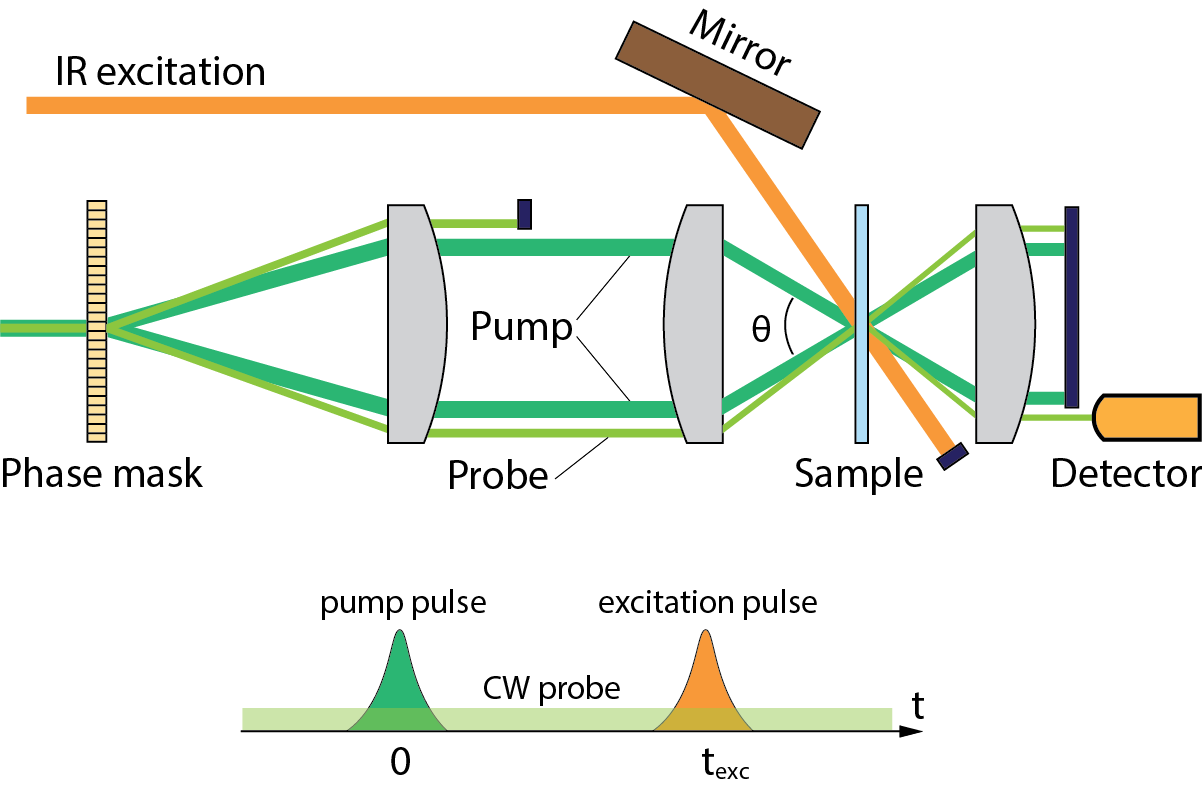
Conventional ways to change material's heat conduction properties involve methods of creating defects and changing the sample size. The paper by the former graduate student and postodc in our group, Jiawei Zhou, and collaboratos experimentally verifies that a different mechanism through electron-phonon interaction can also greatly impact heat conduction. The researchers used laser pulses to create free electrons and monitor their impact on thermal transport. The results provide new understandings to thermal transport in doped semiconductors, and the possibility of dynamically tune heat conduction using light.
Sterilizing Medical Tools Using Solar Heat
MIT News featured the work done by Profs. Evelyn Wang's and Gang Chen's groups to engineer a device that could provide pressurized steam to run autoclaves without the need for electricity, scarce in off-grid areas.
New publication: Intrinsic nonreciprocal reflection and violation of Kirchhoff's law of radiation in planar type-I magnetic Weyl semimetal surfaces
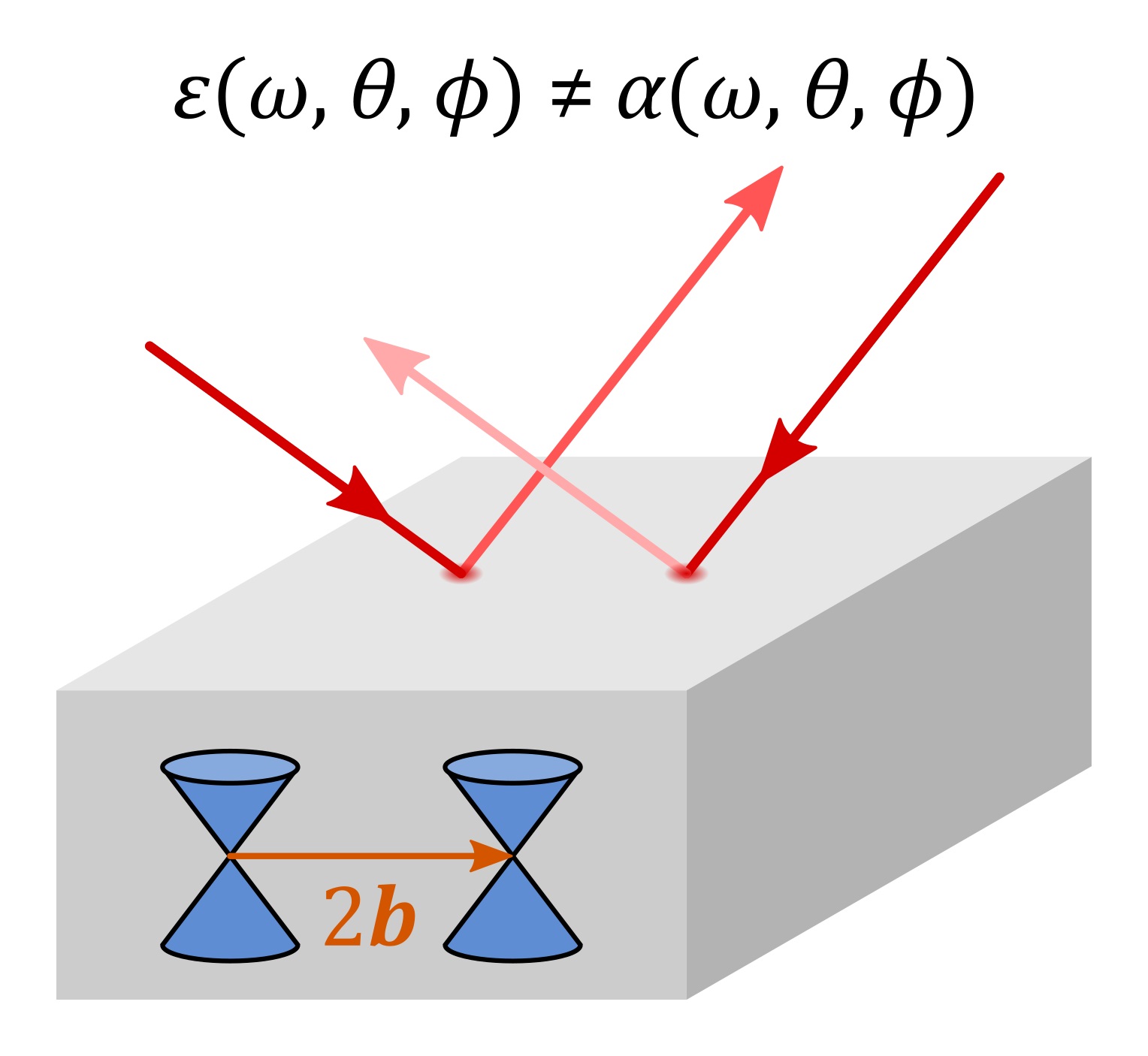
A manuscript by Simo Pajovic, Yoichiro Tsurimaki, Xin Qian, et al. has been accepted by Physics Review B. Kirchhoff's law of radiation states that the spectral directional emissivity and absorptivity of a surface are equal. It is well-known that this law can be broken by materials such as semiconductors in the presence of a magnetic field because of broken Lorentz reciprocity. However, in this manuscript, Simo and his teammates showed that a flat surface made of a type-I magnetic Weyl semimetal can intrinsically violate Kirchhoff's law of radiation via the Berry curvature-induced anomalous Hall effect, which could lead to novel emitters, absorbers, and optical diodes.
New publication: Dynamic intermolecular interactions through hydrogen bonding of water promote heat conduction in hydrogels

In the paper, Jiawei Zhou and other researchers explored dynamic intermolecular interactions through hydrogen bonding between water and polymer to enhance thermal transport in hydrogels. This mechanism may potentially allow design of heat-conducting soft materials with mechanical compliance and adaptability functionality, providing new strategies for thermal management in stretchable electronics and soft robotics.
Former member virtual visit to group during pandemic
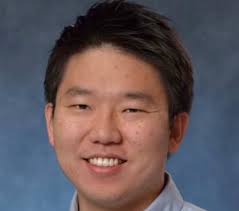
Dr. Sangyeop Lee was a graduate student in the group for 2009-2015. During his study at MIT, Sangyeop worked on the transport of phonons and electrons in thermoelectric materials and two-dimensional materials using both first principles calculations and experimental characterizations. In 2015, he joined the University of Pittsburgh as a faculty member in the Department of Mechanical Engineering and Materials Science. Sangyeop is a recipient of NSF CAREER award in 2019. During the virtual visit to the group on July 9, Sangyeop gave a Zoom talk entitled "Thermal transport in solids from first principles and machine learning".
Former group member accepted faculty position

Dr. Samuel Huberman, a former graduate student in the group for 2011-2019, has accepted a faculty position in the University of Ottawa. Meanwhile, he is also working on a startup grant called Discovery Grants in Canada. Before joining the University of Ottawa, Sam was a postdoc researcher at Princeton University. Congratulations to Sam.
Different cultures, same dreams

On the beautiful morning of the Fourth of July, group members gathered over the Zoom to chat about the cultural differences. As one can see from the picture for this post, current members are from eight countries and joined the same group at this point in the life for the same academic dreams. During the chat, members talked about cultural differences across regions and ages along dimensions such as PDI and IDV. That was a very fun virtual gathering.
Group virtual coffee hour discussing public speaking skills

In the weekly coffee hour on June 20, 2020, the group had an impressive discussion on speaking skills. Members shared experience and explored techniques. The key points covered were: how to overcome the fear and shyness, how to speak loud, slowly, and clearly, how to be good at impromptu, how to make the presentation more engaging, and how to handle unexpected questions. Members also recommended the video "How to Speak" by Professor Patrick Henry Winston. A summary of this discussion session can be found on the group's "Internal" web page.
New publication: Accurate measurement of in-plane thermal conductivity of layered materials without metal film transducer using frequency domain thermoreflectance
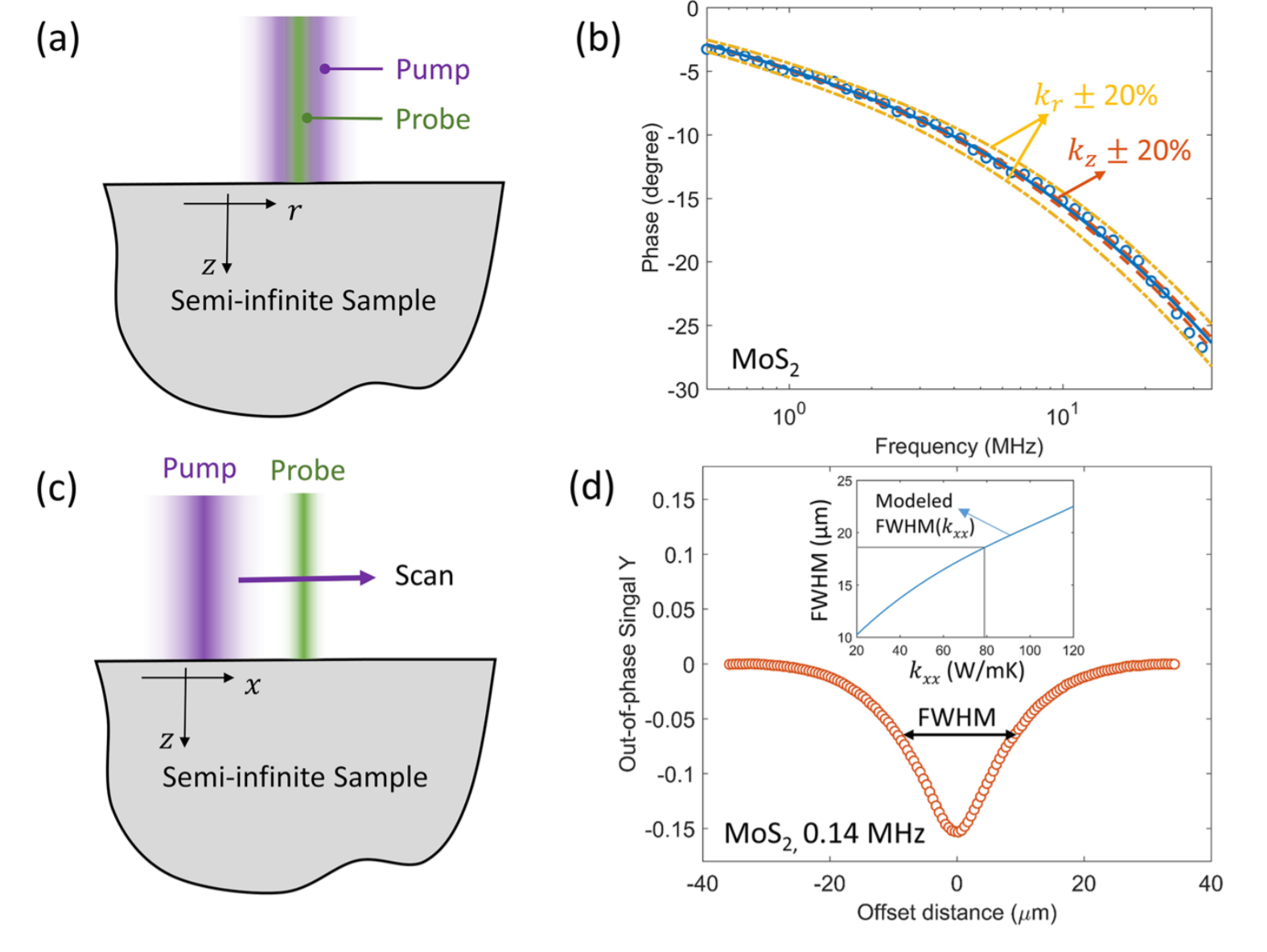
In the paper, the authors demonstrated accurate measurement of in-plane thermal conductivity of layered materials in a wide range from 3 W/mK (Bi2Se3), 80 W/mK (MoS2) to 1800 W/mK (graphite), which is an important advance in laser based thermal metrology.
Congratulations on the graduation!

Three of our group memebers graduated this May: Mohsen Alowayed (MS), Yi Huang (PhD), and Jiawei Zhou (PhD). Mohsen has joined the SpaceX as an engineer. Jiawei accepted a postdoc position at Stanford University. Yi is embracing a break and preparing for a new chapter in her life. In addition, Shaoting Lin from Prof. Xuanhe Zhao's group graduated this May (PhD) as well and is a postdoc under Profs Zhao's and Gang Chen's joint advising. His J-WAFS' proposal has been selected for award. Congratulations to all of them!
New publication: Giant thermopower of ionic gelatin near room temperature
The paper is published in Science, for which Dr. Xin Qian and Prof. Gang Chen contributed to the theoretical analysis and model derivations. The paper demonstrates a giant positive thermopower of 17.0 mV K−1 in a flexible, quasi-solid state, ionic thermoelectric material using synergistic thermodiffusion and thermogalvanic effects.
International Colloquia on Thermal Innovations
Sponsored by MIT MechE, Profs. Chen, Henry, Lienhard, and Wang launched an online webinar series on thermal innovations. The first seminar entitled Five Grand Challenges in Thermal Science and Engineering for Deep Decarbonization will be presented by Prof. Arun Majumdar from Stanford University, EDT 10-11:00am, Wedneday, April 29, 2020, over the Zoom. Join the Mailing List to receive the senimar info.
Virtual Coffee Hour with Alums
In the virtual coffee hour on Saturday, April 25, 2020, around 40 Nanoengineering alums joined the chat. They are currently faculty members or industry professionals around the world. People were excited to catch up online during the COVID-19.
New publication: Large nonreciprocal absorption and emission of radiation in type-I Weyl semimetals with time reversal symmetry breaking
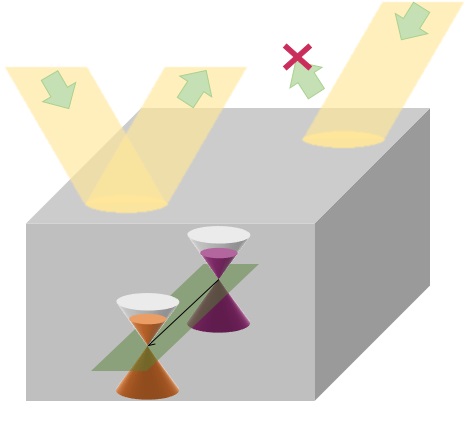
In our recent study published in Physical Review B, we predicted that a type of magnetic materials' topological phase called Wey semimetal phase can break Kirchhoff's law of radiation without an external magnetic field.
MIT News: A Material's Insulating Property can be Tuned at Will
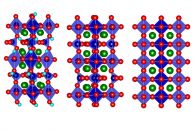
MIT researchers including members in Profs. Bilge Yildiz's and Gang Chen's groups designed a device that can vary the thermal conductivity on demand.MIT News highlighted this technology that can potentially open the door to new technologies for controllable insulation in smart windows, smart walls, smart clothing, or even new ways of harvesting the energy of waste heat.Updated Feb. 24, 2020.
MIT News: Preventing Energy loss in Windows

MIT News highlights MIT researchers and alums's effort in improving energy efficiency in building materials, including the development of polymers by Elise Strobach, Skle Wilke, Dr. Svetlana Boriskina, and Prof. Gang Chen's group to trap or reflect heat. Updated Jan. 6, 2020.
Jiawei received Best Poster Award
Graduate student Jiawei Zhou won the Best Poster Award in Micro/Nano Poster Forum of ASME 2019 International Mechanical Engineering Congress & Exposition, Salt Lake City, with his poster entitled "Large impact of electron-phonon interaction on heat transport of silicon at room temperature". Updated Oct. 26, 2019
MIT News: A New Tool Measures the Distance between Phonon Collisions

Tabletop setup provides more nuanced picture of heat production in microelectronics. MIT News highlights Yongjie's work on measuring phonon mean free path distributions with microfabricated nanoscale heaters. This work was published this week on Nature Nanotechnology. Updated Jun. 01, 2015.
MIT News: Tunneling across a Tiny Gap
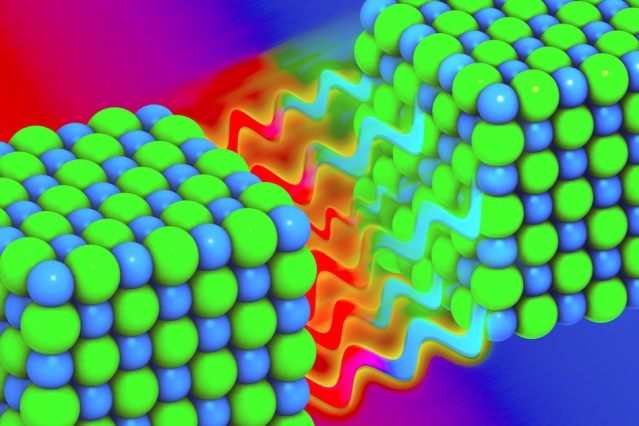
"Phonon tunneling" explains heat flow across nanometer-wide gaps. MIT News highlights Vazrik's new work on modeling the transition from near-field radiation to phonon thermal conduction. This work was published this week on Nature Communications. Updated Apr. 12, 2015.
Yuan Received MRS Postdoctoral Award
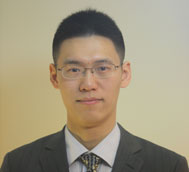
Yuan Yang received 2015 MRS Postdoctoral Award "for innovative research on electrochemical materials and systems to convert low-grade waste heat into electricity and exploration of new applications of batteries". Updated Feb. 24, 2015.
Yuan's Research Among Top 10 World-Changing Ideas in 2014 Picked by Scientific American
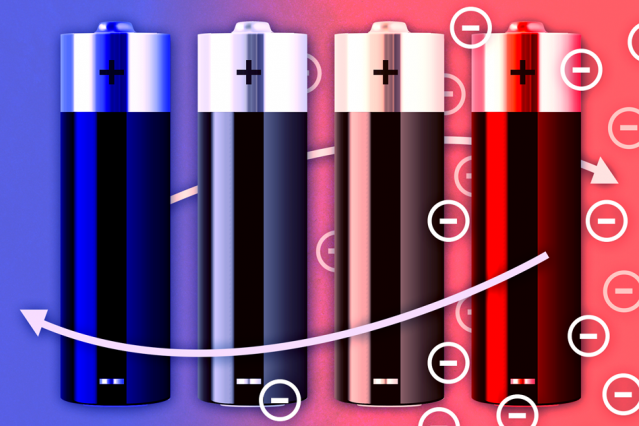
Postdoc Yuan Yang's work on thermally regenerative electrochemical cells has been picked by Scientific American as one of the 10 world-changing ideas in 2014. Updated Nov. 30, 2014.
MIT News: Running on Waste Heat
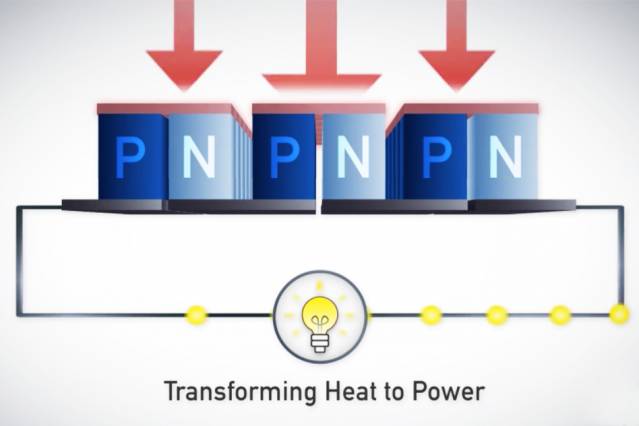
Prof. Chen and his cofounded company GMZ were highlighted in MIT News. Updated Aug. 12, 2014.
MIT News: Refrigerator Magnets
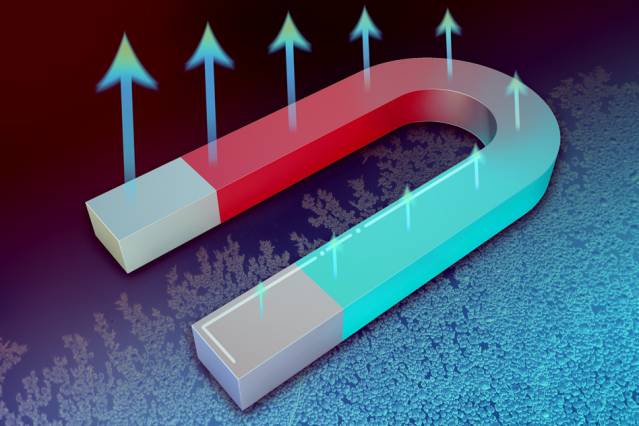
New theory predicts magnets may act as wireless cooling agents. Graduate Student Bolin Liao's new work on magnon cooling effect was published in the journal Physical Review Letters, and highlighted in MIT News. Updated July 25, 2014.
MIT News: Steam from the sun
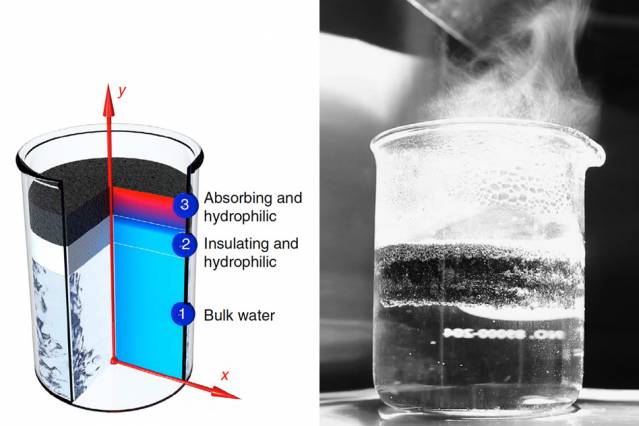
New spongelike structure converts solar enery into steam. Dr. Hadi Ghasemi's new work on solar steam generation was published in the journal Nature Communications and highlighted in MIT News. Updated July 21, 2014.
Prof. Chen was elected to Academia Sinica
Academia Sinica (Taiwan) announced its newly elected academicians on July 4 after its biennial Convocations of Academicians. Prof. Gang Chen was among the newly elected academians for his contributions in "nanoscale heat transfer and energy technology". Congratulations to Gang! Updated July 6, 2014.
Prof. Chen received the Nukiyama Memorial Award
At the Annual Meeting of the Heat Transfer Society of Japan in Hamamatsu on May 22, 2014, it was announced that the Nukiyama Memorial Award is bestowed to Prof. Gang Chen, for "his outstanding contributions in the field of nanoscale transport and energy conversion phenomena". The Nukiyama Memorial Award commemorates outstanding contributions by Shiro Nukiyama as an excellent heat transfer scientist. Prof. Chen is the second recipient of this award. Congratulations to Gang! Updated May 29, 2014.
MIT News: A new way to harness waste heat

Electrochemical approach has potential to efficiently turn low-grade heat to electricity. A new paper coauthored by postdoc Yuan Yang in NanoEngineering group was recently published in Nature Communications, depicting a novel way of harvesting low-grade waste heat using an electrochemical system. It is also covered by MIT News. Updated May 22, 2014.
Zhiting Tian receives departmental award
Graduate student Zhiting Tian in NanoEngineering group received the Wunsch Foundation Silent Hoist and Crane Award for academic excellence from the Department of Mechanical Engineering. Congratulations to Zhiting! Updated May 22, 2014.
MIT News: Solving a mystery of thermoelectrics
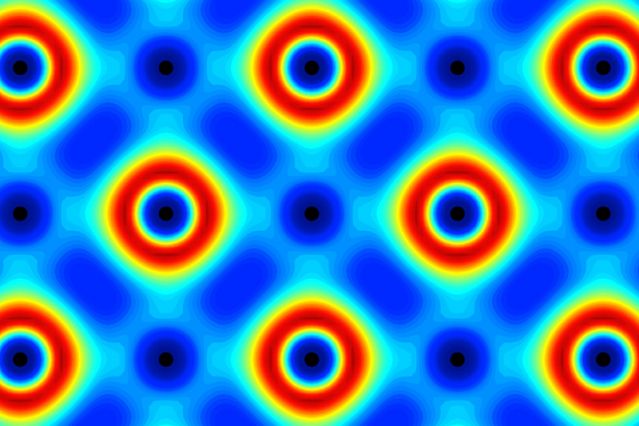
New analysis explains why some materials are good thermal insulators while similar ones are not. Sangyeop's new paper titled "Resonant bonding leads to low lattice thermal conductivity" was published on Nature Communications and highlighted in MIT News. Updated Apr. 30, 2014.
Sangyeop Lee won Best Poster Award in IMECE 2013
Graduate student Sangyeop Lee won the Best Poster Award in Micro/Nano Poster Forum of ASME 2013 International Mechanical Engineering Congress & Exposition, San Diego, with his poster titled "Resonant bonding leads to low thermal conductivity". Updated Nov. 20, 2013.
Maria Luckyanova won DOE Graduate Student Competition
Graduate student Maria Luckyanova won the Department of Energy Office of Science "Graduate Student Competition" at the 2013 EFRC PI Meeting at Washington D.C. in July, representing S3TEC center with her work titled "Coherent Phonon Heat Conduction in Superlattices". Check out the MechE News. Updated Aug. 29, 2013.
Professor Chen named head of the Department of Mechanical Engineering
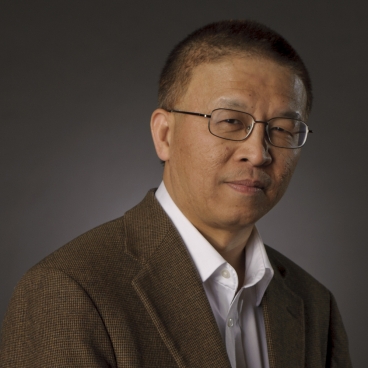
Professor Gang Chen has been named head of the Department of Mechanical Engineering (MechE), effective July 23. Read the MIT News announcement for more information. Updated July 25, 2013.
Professor Gang Chen received the 75th Anniversary Medal of the ASME Heat Transfer Division

Professor Gang Chen has been selected to receive the 75th Anniversary Medal of the ASME Heat Transfer Division. This award is in recognition for service to the heat transfer community and for contributions to the field of heat transfer. Gang received the award at the 75th Anniversary Awards Ceremony at the ASME 2013 Summer Heat Transfer Conference in Minneapolis, MN on July 15th. Updated July 20, 2013.
Video lectures of 2.57 Nano-to-Macro Transport Processes now online
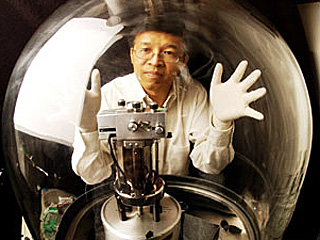
Video lectures of 2.57 Nano-to-Macro Transport Processes given by Professor Chen recorded in Spring 2012 are now on MIT Open Courseware. Updated Apr. 9, 2013.
MIT News: 'Invisible' particles could enhance thermoelectric devices
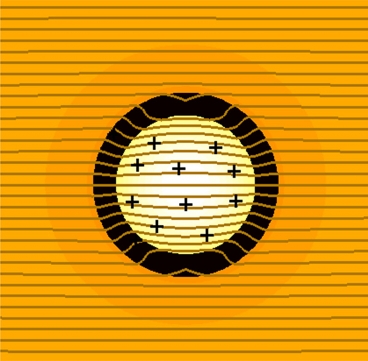
Researchers in nanoengineering group propose a new approach, invisible doping, to improve the efficiency of thermoelectric devices. This work was published in Advanced Materials recently, and highlighted in MIT News. Updated Feb. 7, 2013.
Bolin Liao wins Student Poster Award at MRS Fall Meeting 2012
Graduate student Bolin Liao in nanoengineering group won the Student Poster Award for thermoelectric symposium at MRS Fall Meeting 2012 at Boston, MA, for his poster titled "Cloaking core-shell nanoparticles from conducting electrons in solids". The poster was coauthored by former nanoengineering group members Dr. Mona Zebarjadi, Dr. Keivan Esfarjani and Professor Gang Chen. Updated Dec. 1, 2012.
Professor Gang Chen elected as APS Fellow

Professor Gang Chen was recently elected as APS Fellow in 2012. Official quote: "For pioneering contributions to the understanding of heat transfer at nanoscale and to the development of thermoelectric energy conversion technologies". Updated Nov. 29, 2012.
Directional Solvents Desalination Among Top 10 World Changing Ideas 2012, picked by Scientific American

Directional solvents desalination, a new promising method of treating dirty water from fracking for natural gas and oil, was selected as one of Top 10 World Changing Ideas 2012, by Scientific American. Updated Nov. 21, 2012.
MIT News: Controlling heat flow through a nanostructure

Nanoengineering researchers found that heat moving in materials called superlattices behaves like waves. This finding could enable better thermoelectrics. This work was published on Science recently and you can check out the full news article here.
MIT News: "Invisibility" could be a key to better electronics
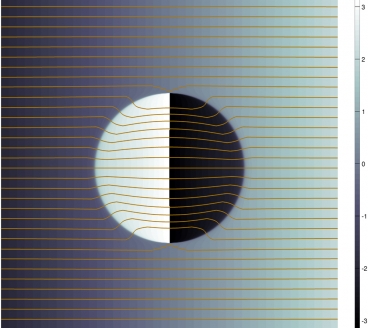
Researchers in NanoEngineering applied technology developed for visual "cloaking" to enable more efficient transfer of electrons. This work was published on Physics Review Letters and highlighted by Physics Synopsis and Nature Nanotechnology. It also gained some media coverage, such as in MIT news and PhysicsWorld, and was chosen as the cover story of MIT's website on Oct. 15, 2012.
Yongjie Hu wins the Best Poster Award at IMECE 2012
At IMECE 2012 in Houston, Texas, Dr. Yongjie Hu in Nanoengineering group won the Best Poster Award for his poster titled "Hybrid Nanostructures for Nanoscale Heat Transfer". The poster was coauthored by Nanoengineering members Kimberlee Collins, Lingping Zeng, Maria Luckyanova and Professor Gang Chen.
MIT News: Textured surface may boost power output of thin silicon solar cells
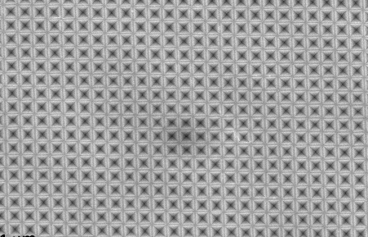
Researchers in Nanoengineering group finds new approach to trapping light efficiently in thin-film silicon solar cells. Check out the paper by Anastassios et al., and the news coverage by MIT news office. Updated Jun. 12, 2012
Newborn Professors from Nanoengineering, 2012
Three members in Nanoengineering group were offered faculty positions this year: Dr. Mona Zebarjadi will start as an assistant professor in the department of mechanical and aerospace engineering at Rutgers University in January 2013. Dr. Anastassios Mavrokefalos was appointed as an assistant professor of mechanical engineering in Cullen College of Engineering at University of Houston. Dr. Sang Eon Han is now an assistant professor in the department of chemical and nuclear engineering in the University of New Mexico.
Directional Solvents for Treating Dirty Frack Water
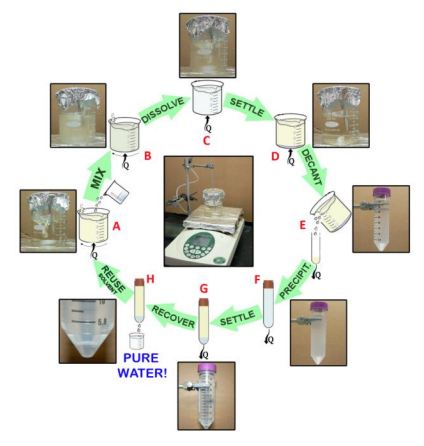
Work by Anurag Bajpayee on directional solvents could have significant implications in the treatment of dirty water from fracking for natural gas and oil. Read coverage from Scientific American.
Congratulations MIT NanoEngineering class of 2011
Congratulations to Andy Muto and Austin Minnich on receiving their Ph.D. degrees. Dr. Minnich is joining the mechanical engineering faculty at CalTech and Dr. Muto has taken an industry job with Corning. In addition to the graduates, congratulations are in order for the five post-docs leaving our group. Dr. Nitin Shukla is joining Fraunhofer Institute as a thermal engineer in their building technology group; Dr. Hsien-Ping Feng will be an assistant professor at Hong Kong University; Shuo Chen has been appointed to a senior research associate at Boston College; Dr. Celine Hin is joining the faculty at Virginia Tech; and Dr. Tengfei Luo will be a professor at the University of Notre Dame.
Solar Thermoelectric Generators Making News
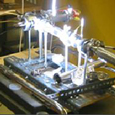
Thermoelectric devices, which convert heat to electricity, can be used to convert solar power into electrical power. The devices comprise a surface which absorbs the sun's heat; a heat sink that stays at a fixed temperature; and a thermoelectric material between the absorber and the heat sink which converts this temperature difference into an electrical current. The recent NanoEngineering Group paper by Kraemer et. al, published in Nature Materials, has garnered a good deal of press. Read coverage from MIT News or The Economist.
MIT News: Nanofluid Thermal Conductivity

Researchers in Prof. Chen's lab have demonstrated the ability to control the thermal and electrical conductivities of fluids by creating networks of graphite in the solution. Read the full article here.
MIT News: Phonons Explained
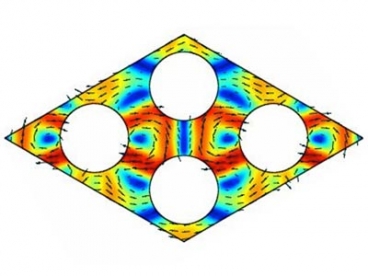
Prof. Chen is interviewed for MITnews' "Explained: Phonons" article in their series on current topics in engineering and physics.
Congratulations MIT NanoEngineering class of 2010
Congratulations to Tom Harris, Qing Hao, and Sheng Shen on receiving their Ph.D. degrees. Dr. Harris is a post-doc at Sandia National Labs, Dr. Hao will spend one year as a post-doc for Prof. Ceder at MIT before joining the faculty at the University of Arizona, and Dr. Shen has accepted a faculty position at Carnegie Mellon University.
ASME Launches Professor Gang Chen's Podcast on Thermoelectric Devices
Prof. Chen's Podcast on Thermoelectric Devices is now available under ASME's Nano Educational Series, designed to provide comprehensive introduction to nanotechnology fundamentals and application. Click here to sign up and download this and other complimentary podcasts from experts.
MIT Mechanical Engineering News profiles Professor Gang Chen

Prof. Chen is profiled in MechEConnects, the MIT Mechanical Engineering Department's biannual news magazine, regarding the NanoEngineering Group's research. Read the full article here.
MIT News: Insulators made into conductors
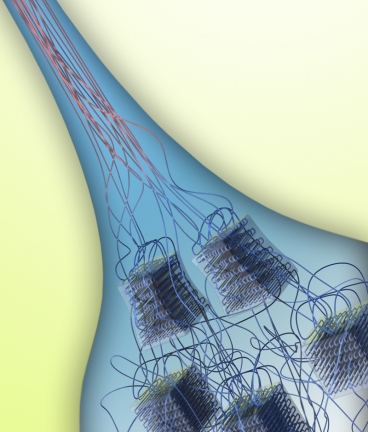
Sheng Shen, Asegun Henry, Jonathan Tong, Ruiting Zheng, and Professor Gang Chen have shown that polymers can be as good conductors as many metals. Their letter, published March 7 in Nature Nanotechnology, describes how drawing polymer fibers causes molecular chain alignment. This alignment leads to the anisotropically high thermal conductivity while maintaining low electrical conductivity. Materials with such properties could be used to solve many thermal management problems. Read the full article in MIT News or Nature.
Professor Gang Chen elected to the National Academy of Engineering
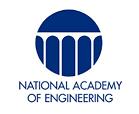
On February 17, the National Academy of Engineering (NAE) announced that Professor Gang Chen has been elected a member of the NAE. They cited his "contributions to heat transfer at the nanoscale and to thermoelectric energy conversion technology." Read the full NAE press release or MIT news.
MIT News: Breaking the law, at the nanoscale
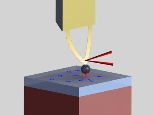
Sheng Shen, Arvind Narayanaswamy, and Professor Gang Chen have proven it possible to break Planck's blackbody radiation law when the distance between objects is on the nanoscale. Careful measurements have shown the heat transfer between two bodies to exceed 1000 times what is predicted by Planck's law. Read the full article in MIT News or Nature.
Professor Gang Chen named to new chair
Professor Gang Chen has been named the Carl Richard Soderberg Professor of Power Engineering. C.R. Soderberg taught at MIT from 1938 to 1960, specializing in turbine design.
Congratulations MIT NanoEngineering class of 2009
Congratulations to Asegun Henry and Hohyun Lee on receiving their Ph.D. degrees. Dr. Henry is joining the faculty of Georgia Tech as an assistant professor; Dr. Lee is an assistant professor at Santa Clara University.
Energy Secretary Steven Chu visits MIT
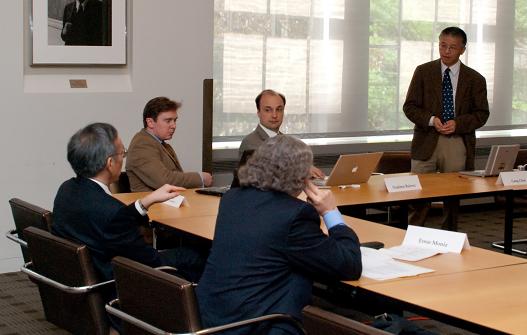
Steven Chu, Secretary of the U.S. Department of Energy, visited MIT to deliver the Compton Lecture. While visiting MIT, he met with various professors, including Professor Gang Chen, to discuss energy issues. At left, Professor Chen presents his research to Secretary Chu.
DOE establishes EFRC under Professor Gang Chen

The U.S. Department of Energy has awarded $17.5M to create an Energy Frontiers Research Center (EFRC) at MIT under the direction of Professor Gang Chen. The Solid-State Solar Thermal Energy Conversion Center (S3TEC) will work to create solid-state materials to convert sunlight and heat into electricity.
Sheng Shen wins best presentation award at IMECE 2008
Sheng Shen was awarded the Hewlett-Packard Best Paper Award at the 2008 International Mechanical Engineering Congress & Exposition held in November in Boston, Massachusetts, for his presentation titled "Near-field thermal radiation: comparison of numerical results and experiments." The paper was coauthored by MIT NanoEngineering alumnus and Columbia University professor Arvind Narayanaswamy.
Sheng Shen wins best poster award at the Julius Springer Forum on Applied Physics
At the 2008 Julius Springer Forum on Applied Physics, Sheng Shen took home the Best Poster award for his poster titled "Breakdown of the Planck's blackbody radiation law at nanoscale gaps." The poster was coauthored by MIT NanoEngineering group members/alumni Lu Hu, Xiaoyuan Chen, Arvind Narayanaswamy, and Professor Gang Chen.
MIT collaboration wins R&D 100 award
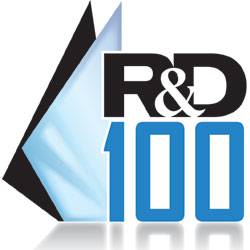
The NanoEngineering Group at MIT, in collaboration with Professor Zhifeng Ren at Boston College and GMZ Energy, Inc. received an R&D 100 award for their development of High Performance Thermoelectric Materials.
MIT News: Engineering new uses for gold

[The team] found that a low concentration of the CTAB in the surrounding solution accelerates heat dissipation after the nanorod is hit with infrared light. When the concentration of CTAB is high, heat is dissipated more slowly. That information could help scientists design nanorods that fight cancer agents by burning away tumor cells when activated with infrared light.
MIT News: Students seek to harness waste heat

Andy Muto and Daniel Kraemer, graduate students in mechanical engineering, and Bryan Ho, a graduate student in materials science and engineering, have been working together on a thermoelectric system that could be installed in a hot-water pipe, or in exhaust flues at the plant, to get some extra electric power from heat currently going to waste.
Professor Gang Chen receives ASME Heat Transfer Memorial Award
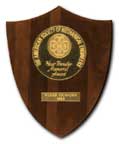
Professor Gang Chen was awarded the 2008 Heat Transfer Memorial Award by the American Society of Mechanical Engineers (ASME) in March 2008. The award recognizes Professor Chen's "outstanding contributions to the field of heat transfer through teaching, research, practice and design, or a combination of such activities." The award specifically recognizes Professor Chen in the category of the science of heat transfer.
Science Express Paper: High-Thermoelectric Performance of Nanostructured Bismuth Antimony Telluride Bulk Alloys
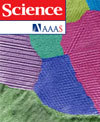
Here we show that a peak ZT of 1.4 at 100°C can be achieved in p-type nanocrystalline bismuth antimony telluride bulk alloy. These nanocrystalline bulk materials were made by hot-pressing nanopowders ball-milled from crystalline ingots under inert conditions. More importantly, ZT is about 1.2 at room temperature and 0.8 at 250C, which makes these materials useful for cooling and power generation. This discovery sets the stage for use of a new nanocomposite approach in developing high performance low-cost bulk thermoelectric materials. Full article
Slides and Photos from ENIC 2006

Click here to download slides from the ENIC tutorial sessions and see photos from the conference.
Energy Nanotechnology International Conference @ MIT
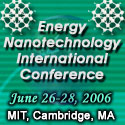
The Energy Nanotechnology International Conference was hosted at MIT on June 26-28, 2006. The conference featured invited and contributed presentations, poster sessions, academic, industrial and government panels, and investment opportunities.
Nature Paper: Superplastic Carbon Nanotubes

Conditions have been discovered that allow extensive deformation of rigid single-walled nanotubes.
J. Y. Huang, S. Chen, Z. Q. Wang, K. Kempa, Y. M. Wang, S. H. Jo, G. Chen, M. S. Dresselhaus, Z. F. Ren, "Superplastic carbon nanotubes," Nature 439, 281-281 (19 Jan 2006). Full article
Best Paper Award: InterPACK 2005
Ming-Shan Jeng, Ronggui Yang, David Song, and Gang Chen, "Monte Carlo Simulation of Thermal Conductivity and Phonon Transport in Nanocomposites," Proceedings of InterPACK2005, ASME InterPACK05, July 17-22, 2005, San Francisco, CA, HT2005-72780.
Ronggui Yang Wins the 2005 Goldsmid Award
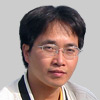
From the International Thermoelectric Society:
"Ronggui Yang of the Massachusetts Institute of Technology met demanding standards to win the 2005 Goldsmid Award for Excellence in Research in Thermoelectrics by a Graduate Student. The Goldsmid Award, presented to Mr. Yang at the ICT2005 banquet, seeks to identify exceptional Ph.D. candidate graduate students who have made unusually notable contributions to thermoelectrics. Mr. Yang's publication record is impressive for anyone, much less for a student." Read more